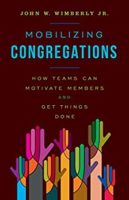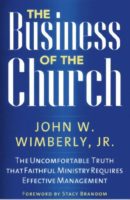by John Wimberly
As a baby boomer, I am disappointed by church members in my generation who, all too frequently, dismiss millennials and others who describe themselves as “spiritual but not religious.” It is a theme I hear constantly in my consulting practice. “Why focus on them when they have already told us they are spiritual but not religious?” or “They have no desire to join or even attend a congregation because they are spiritual but not religious” are comments I hear every single time I work with a congregation.
Today’s church members attend congregations built by people who refused to give up on their younger generation’s objections to the religion. If congregational members don’t get over this dismissal of the possibility that young people will join our congregations, then we might as well start planning for the death of our church families. By the way, if I remember correctly, we boomers had a whole bunch of complaints about the congregations of our youth. In our twenties, we were hardly storming the doors to attend worship. Someone helped us work through our objections to religion.
Young adults of the past
Today’s generation is not the first to find appeal in the notion of “spiritual but not religious.” Let’s look at some of the folks throughout history who might be described in a comparable way. For example,
- Amos was typical of the prophets’ attitude toward religion when he declared “I hate, I despise your festivals, and I take no delight in your solemn assemblies. Even though you offer me your burnt offerings and grain offerings, I will not accept them; and the offerings of well-being of your fatted animals I will not look upon. Take away from me the noise of your songs; I will not listen to the melody of your harps. But let justice roll down like waters, and righteousness like an ever-flowing stream.” (Amos 5) The prophets called their listeners to a less religion-oriented, more spiritual (God-oriented) faith.
- Speaking of the religion and religious leaders of his day, Jesus oftentimes spoke critically, as when he said, “…but do not do as they do, for they do not practice what they teach. They tie up heavy burdens, hard to bear, and lay them on the shoulders of others; but they themselves are unwilling to lift a finger to move them. They do all their deeds to be seen by others….” (Matthew 23)
- Martin Luther was so fed up with the religion of his day that he defaced the doors of a church with his demands!
Perhaps most relevant to our situation today are the writings of Friedrich Schleiermacher, a Christian pastor and theologian who lived as the 18th century morphed into the 19th century. It was a time when the Enlightenment was in full, intoxicating bloom. Supremely confident in the power of human knowledge and science, many in Schleiermacher’s generation came to view faith in God and religion as superstitious relics of a primitive past. Son and grandson of pastors, as a young man in his twenties, Schleiermacher wrote to his father about the church’s failure to speak to the doubts and concerns of his generation. Those doubts and concerns were similar to those of the Millennials today.
Schleiermacher decided to affirm the doubts of his generation and reorient the focus of religion to its origins in human feeling. He wrote, “Religion is the outcome neither of the fear of death, nor of the fear of God. It answers a deep need in (humanity). It is neither a metaphysic, nor a morality, but above all and essentially an intuition and a feeling…. Dogmas are not, properly speaking, part of religion: rather it is that they are derived from it.” (Addresses on Religion) Schleiermacher’s emphasis on a faith in God flowing from intuition and feeling created a renewal of Christianity that can bear comparison with the Reformation.
Listen to Millennials
Are the Millennials saying that religious institutions have become too far removed from the feelings that led to their creation? Are young people embracing the same feelings—the “spiritual” in “spiritual but not religious”—Schleiermacher did? I believe the answer to both questions is: “Absolutely!”
When Friedrich Schleiermacher died, his funeral procession through Berlin was over a mile long. As the procession passed, thousands of Berliners lined the street, and an equally huge crowd gathered at the cemetery. Such was the respect paid to a man who redirected Christianity toward the spiritual dimension of its faith in God. Can congregations of all types respond, as did Schleiermacher, to the spiritual but not religious people of today? Of course we can!
John Wimberly is an experienced pastor and consultant. As a consultant, he has worked with congregations and judicatories on strategic planning, staff designs for the 21st century, and congregational growth as well as financial and administrative management. He has MBA, MDiv, and PhD (theology) degrees. His books focus on effective management and leadership. John believes congregations can have a bright future!




